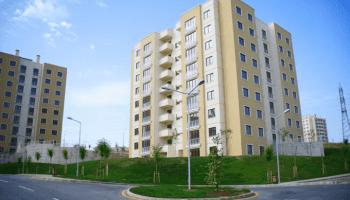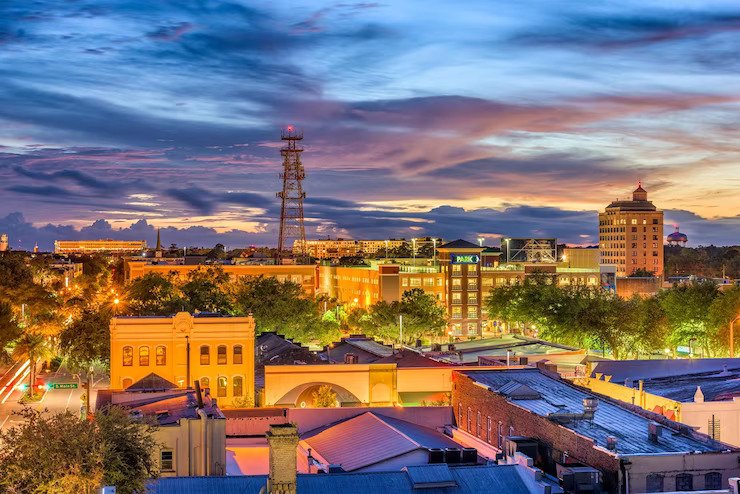Gainesville, Florida, is a city located in the northern region of the state.
It is popular for its picturesque landscapes, a thriving cultural scene, and a welcoming community. Gainesville is home to the University of Florida, one of the largest universities in the country. As a result, Gainesville has a diverse population of students, professionals, and families.
Before taking the move, you need to ensure to hire the best and the most affordable moving company in Gainesville, FL, as they will make the move as smooth as possible. One important factor to consider before moving to Gainesville is the cost of living. In this article, we will take a closer look at the cost of living in FL’s Gainesville, including housing, utilities, transportation, and other essential expenses.
Housing
The cost of housing in this posh area of FL is relatively affordable compared to other major cities in the state. The median home price in Gainesville is $212,300, which is lower than the statewide median of $266,000. The approx rent for a one-bedroom flat in Gainesville is somewhere around $1,100 each month, whereas a two-bedroom house can cost up to $1,500 for each month.
One of the most popular neighborhoods for families is Haile Plantation, which is famous for its spacious homes, tree-lined streets, and proximity to top-rated schools. The average home price in Haile Plantation is around $350,000, which is higher than the city-wide median but still affordable compared to other major cities in the state.
For students, the most popular areas to live in are Midtown and Downtown Gainesville, which are within walking distance of the University of Florida. The average charge for a one-bedroom flat in Midtown and Downtown is approx $1,200 per month.
Utilities
The cost of utilities in Gainesville can vary depending on the size of the home and the number of people living there. The average monthly cost of electricity, gas, and water for a family of four is around $250 per month. However, this can fluctuate depending on the time of year and the level of energy consumption.
One way to save on utility costs is to take advantage of the city’s renewable energy programs. Gainesville Regional Utilities (GRU) offers several renewable energy programs, including solar power and biogas, which can help reduce energy costs and promote sustainability.
Transportation
Gainesville is a relatively small city, and most residents rely on their cars to get around. The cost of gas in Gainesville is around $2.70 per gallon, which is slightly lower than the national average. Additionally, Gainesville Regional Transit System (RTS) provides bus services throughout the city. A one-way bus fare is $1.50, while a monthly pass costs $50.
For students, the University of Florida also offers a free bus service, which operates throughout campus and surrounding areas. This can help reduce transportation costs for students and make it easier to get around without a car.
Food And Groceries
The cost of food and groceries in FL’s Gainesville is relatively affordable compared to other major cities in the state. The average cost of a meal at a mid-range restaurant is $15 per person or so, while a fast food meal can charge around $7 per person. The average cost of groceries for a family of four is around $500 every month.
One of the most popular grocery stores in Gainesville is Publix, which offers a wide variety of fresh produce, meat, and dairy products at affordable prices. There are also several farmers’ markets located throughout the city, which offer locally-grown produce and handmade goods.
Healthcare
Gainesville has a robust healthcare system, with several hospitals and medical centers located throughout the city. The cost of healthcare in Gainesville can vary depending on the type of treatment and the level of insurance coverage. On average, a doctor’s visit in Gainesville can cost around $100 without insurance.
For residents who are uninsured or underinsured, the city offers several free or low-cost healthcare clinics, including the Alachua County Health Department and the ACORN Clinic. These clinics provide a wide range of medical services, including primary care, dental care, and mental health services.
Entertainment
Gainesville has a thriving cultural scene, with several museums, galleries, and theaters located throughout the city. The cost of entertainment in Gainesville can vary depending on the activity and the time of year. A movie ticket in Gainesville costs around $12, while admission to a museum can range from $5 to $15.
One of the most popular cultural attractions in Gainesville is the Harn Museum of Art, which features a vast collection of art from around the world. The museum offers free admission to the public, making it accessible to everyone.
For sports fans, the University of Florida is home to several NCAA Division I sports teams, including football, basketball, and baseball. Tickets for these games can vary in price depending on the team and the level of competition.
Other Essential Expenses
Other essential expenses in Gainesville, FL, include clothing, personal care items, and education. The cost of clothing in Gainesville is relatively affordable compared to other major cities in the state. The average cost of a pair of jeans is around $45, while a pair of shoes can cost around $80. The cost of personal care items such as shampoo and toothpaste is also relatively affordable, with the average cost being around $5 per item.
For education, Gainesville is home to several top-rated schools, including the University of Florida and Santa Fe College. The cost of tuition at these institutions can vary depending on the program and the level of education. However, the quality of education offered by these schools is high, making it a worthwhile investment for many students.
Conclusion On Cost Of Living In Gainesville, FL
Overall, the cost of living in Gainesville, FL, is relatively affordable compared to other major cities in the state. Housing, utilities, transportation, food and groceries, healthcare, entertainment, and other essential expenses are all reasonably priced. Gainesville offers a great quality of life at a reasonable cost, making it an attractive option for families, students, and professionals alike.
Read Also:




























